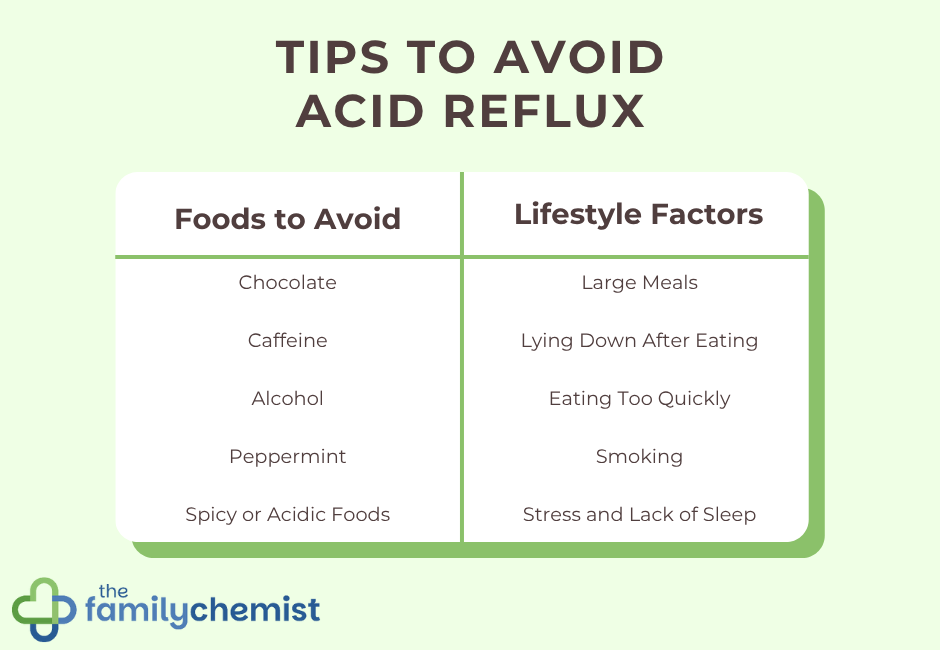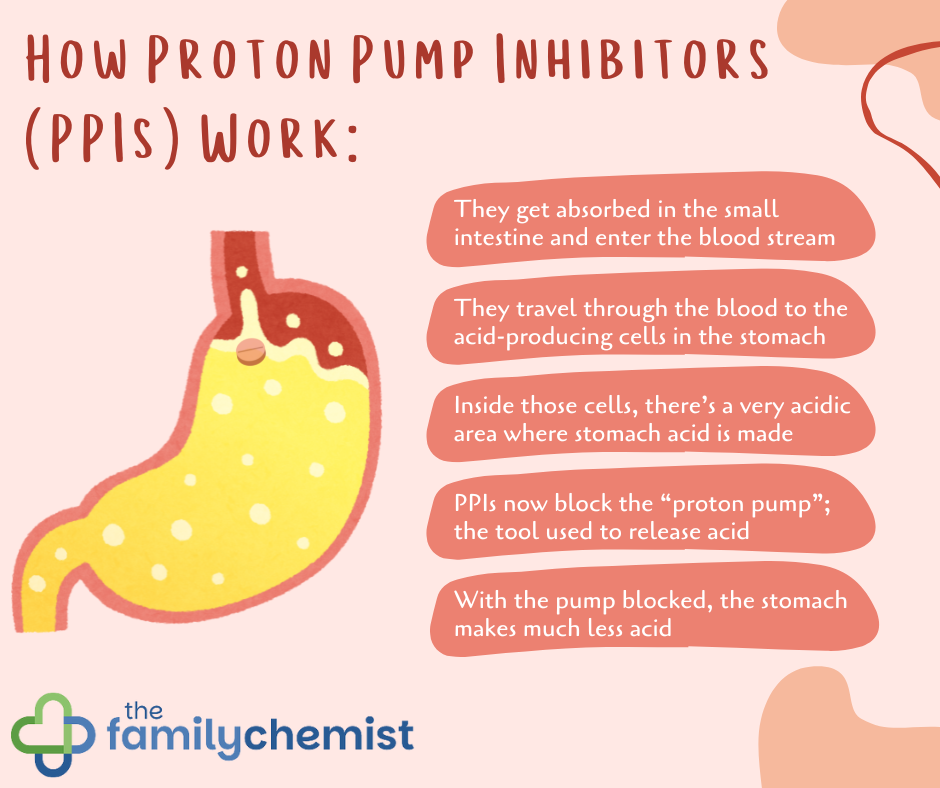How to Prevent Acid Reflux
If you’ve ever experienced that burning sensation in your chest after a meal, you’re not alone. Heartburn and acid reflux affect millions of people across the UK daily. And though, occasional discomfort might not be a cause for concern, frequent symptoms can interfere with daily life and may be worth speaking to a healthcare professional about.
At The Family Chemist, we understand how disruptive acid reflux can be, and offer advice and treatments in order to prevent acid reflux from occurring in the first place, or treat your symptoms quickly.
What Causes Acid Reflux?
Your gastrointestinal tract is a system in the body which is responsible for digesting food. Starting at the mouth, where the food enters, and finishing at the anus where the waste leaves, this long and complex process involves several parts of the body on the way including the oesophagus, stomach, and small and large intestine.
After you swallow food, it moves down the oesophagus and into the stomach where it passes though a small ring that acts as a valve called the lower oesophageal sphincter (LES). This LES stops food from travelling back up into the oesophagus again.
This is where acid reflux can occur. If the LES doesn’t close properly, stomach acid can flow back up into the oesophagus causing acid reflux. Causing that burning feeling in the chest that we often call heartburn.
Why Certain Triggers Can Cause Acid Reflux
Certain foods, habits, and lifestyle choices can make reflux more likely by either relaxing the LES or increasing pressure on the stomach.
Certain food such as fatty or fried meals, and spicy dishes trigger symptoms by affecting how the LES functions or increasing acid production.
Eating large meals, eating too quickly, or lying down shortly after eating can call make reflux worse. These habits create more pressure in the stomach and give acid an easier path upward, especially without the help of gravity when lying down.
Lifestyle factors such as smoking, obesity, or being pregnancy can also increase pressure on the stomach. High stress levels and poor sleep can contribute by encouraging the body to produce more stomach acid.

Since everyone’s triggers can be different, paying attention to what causes your symptoms is an important first step in managing acid reflux.
Top Tips to Prevent Heartburn
-
Eat Smaller Meals, More Often
Large meals put pressure on your stomach, making reflux more likely. Try eating smaller portions more frequently throughout the day to keep digestion manageable.
-
Identify and Avoid Trigger Foods
Everyone’s triggers are different, but common culprits include tomatoes, citrus fruits, chocolate, peppermint, garlic, onions, and spicy or fried foods. Keep a food diary to help identify and eliminate the items that cause flare-ups for you.
-
Don’t Lie Down After Eating
It’s best to wait at least 2-3 hours after eating before lying down or going to bed. This gives your body time to digest and helps prevent stomach acid from creeping back up.
-
Raise the Head of Your Bed
If you suffer from heartburn at night, elevating the head of your bed by 10–20cm can help keep acid in your stomach while you sleep.
-
Maintain a Healthy Weight
Excess abdominal fat can put pressure on the stomach, increasing the risk of acid reflux. Even a small reduction in weight can make a noticeable difference in symptoms.
-
Quit Smoking
Smoking weakens the LES, making it easier for stomach acid to escape into the oesophagus. Quitting smoking not only reduces heartburn but improves your overall health.
-
Wear Loose-Fitting Clothing
Tight waistbands and belts can compress your stomach, encouraging acid to move upward. Choose loose, comfortable clothing, especially after meals.
When Lifestyle Changes Aren’t Enough
While many people find relief through lifestyle adjustments, others may need extra help to manage their symptoms. That’s where medications such as proton pump inhibitors (PPIs) come in.
PPIs (such as omeprazole, lansoprazole, and esomeprazole) work by reducing the amount of acid your stomach produces. This not only helps relieve heartburn but also promotes healing of the oesophagus if it has been irritated by acid.
At The Family Chemist, we offer a range of PPIs available for fast, discreet delivery across the UK.

However, if you’re experiencing symptoms more than twice a week, waking up at night with symptoms, or noticing difficulty swallowing, it’s time to speak to your GP.
Final Thoughts
Acid reflux symptoms are common but often manageable. By making a few simple lifestyle changes and seeking the right treatment when necessary, you can enjoy mealtimes again without worrying about the following discomfort. Whether you’re looking for preventative advice or effective medications, we’re here to help.







